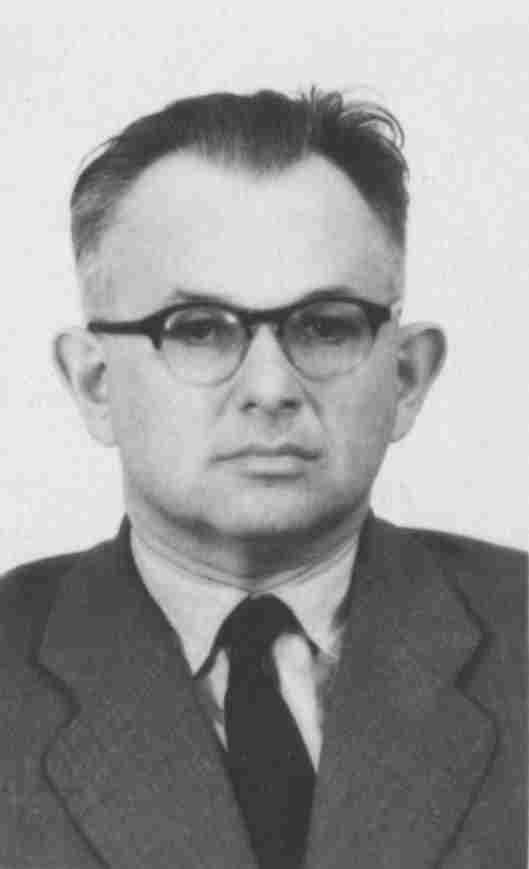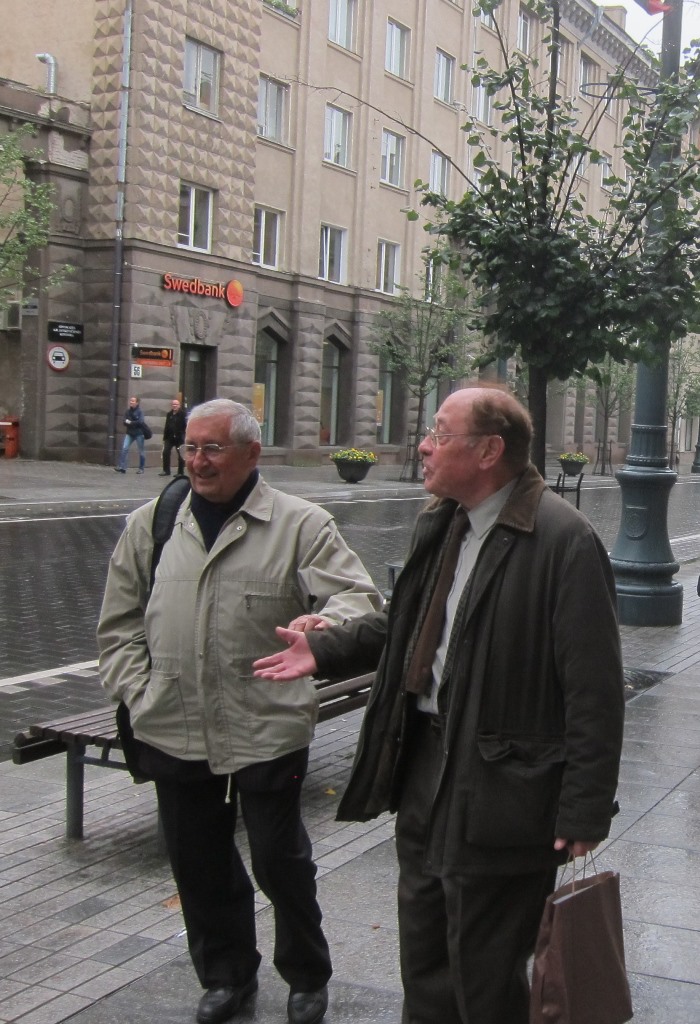M U S I C / O P I N I O N
by Roland Binet (Braine-l’Alleud, Belgium)
SOUND TRACKS OF THE AUTHOR’S COMPOSITIONS:
Rumbula
Threnody
SOUND TRACKS OF THE AUTHOR’S COMPOSITIONS:
Rumbula
Threnody
The following is a translation of an October 2, 2013 piece published by former Baltic News Service chief Artūras Račas on his blog. For context, see some of Mr. Račas’s previous work on Holocaust related issues, e.g. his comments on state investigations of Holocaust survivors who became anti-Nazi partisans (2008) and on Prof. Pinchos Fridberg and Dr. Efraim Zuroff (2013); see also Prof. Fridberg’s reply.
It is both right and laudable that University College London, the School of Slavonic and East European Studies and other partners are organizing a “Round Table Discussion: Anti-Soviet Resistance in the Baltic States” in central London, scheduled for 5 November 2013, 2 to 6:30 PM, with free admission for all (free tickets here; Facebook page here).
This is a chapter from the memoirs written by Yehiel Zilberman, translated from Russian by Olga Gorelik (© Yehiel Zilberman & Olga Gorelik). The chapter appears in Defending History by permission of the copyright holders, with thanks to the good offices of Victor Shifrin (Los Angeles).
 Yehiel (Yekhíel) Zilberman was born in Lithuania in 1922. In 1940 he graduated from the H. N. Bialik Hebrew High School in Shavl (Šiauliai) and was admitted to the Institute of Commerce in the same city. In June of 1941, one year after Lithuania fell under Soviet rule, Yehiel along with his parents and brother Moshe (Mikhail) was exiled to the Altai Region in Russia where he lived until 1945. In 1949 he graduated with Honors from Gorky Industrial Institute and became a chemical engineer. Yehiel worked in both manufacturing and scientific research. In 1954 he received his PhD from the Moscow Institute of Chemical Technology. In 1965 Dr. Zilberman received the title of Professor. From 1970 to 1990 he taught at Gorky Polytechnic Institute.
Yehiel (Yekhíel) Zilberman was born in Lithuania in 1922. In 1940 he graduated from the H. N. Bialik Hebrew High School in Shavl (Šiauliai) and was admitted to the Institute of Commerce in the same city. In June of 1941, one year after Lithuania fell under Soviet rule, Yehiel along with his parents and brother Moshe (Mikhail) was exiled to the Altai Region in Russia where he lived until 1945. In 1949 he graduated with Honors from Gorky Industrial Institute and became a chemical engineer. Yehiel worked in both manufacturing and scientific research. In 1954 he received his PhD from the Moscow Institute of Chemical Technology. In 1965 Dr. Zilberman received the title of Professor. From 1970 to 1990 he taught at Gorky Polytechnic Institute.The following is the text provided by the office of Simon Malkes (Paris) of the speech he delivered at a conference held at the Lithuanian parliament on 22 September 2013, as part of the series of events of the Fourth International Litvak Congress in Vilnius, Lithuania. Mr. Malkes, a Vilna native and survivor of the Vilna Ghetto, is president of the ORT school network.

Simon Malkes (right) speaks to an old friend on Gedimino Boulevard in central Vilnius, after his speech at a session of the Fourth International Litvak Congress held at the Lithuanian Parliament (Seimas).
My name is Simon Malkes. I am a French citizen, living in Paris since 1952. I am a rare survivor, among the less than one percent of Vilna Jewry. I survived thanks to the German officer Karl Plagge who managed the HKP automobile works camp in Vilnius between 1941 and 1944. In 2005, I succeeded to obtain from Yad Vashem in Jerusalem the Righteous Among the Nations title, posthumously, for Karl Plagge.
The following is an English translation, by Geoff Vasil, from the original Lithuanian text that appears on the website of the Office of the Chief Archivist of Lithuania concerning the Vilna Ghetto, on the occasion of the seventieth anniversary of its liquidation on September 23, 1943.
In an important article that appeared in Lithuanian in Bernardinai.lt, and in English in the Lithuania Tribune, author Sergejus Kanovičius pointed out the remarkable disparity of tone between the Lithuanian version on the Chief Archivist’s website (that appears below in English translation), and the English version provided on the Chief Archivist’s website…
The following is the text of the final program received today from the organizers:
International Conference on Anti-Semitism
on the occasion of 100th anniversary of the Beilis Trial
15-16 October, 2013, Kyiv, Ukraine
Fairmont Grand Hotel

MP John Mann (photo: Guardian)
The Contemporary Art Center’s reading room in Vilnius is hosting an unusual-for-Lithuania Holocaust event called Keep Me in Mind. Briefly, visitors are invited to wander among different tables where good-looking and polite people await them with small boxes and sheaves of papers. When you sit down the narrator at the table tells the story of an individual Holocaust survivor, from childhood to the present. Almost all of the survivors seem to now live in Haifa, Israel. One survivor, Benjamin Ginzburg, came from Vilnius.
As I watch the news of tourists excluded from national parks in America, as Federal Government is shutdown, I recall my visit to Washington DC’s famous National Mall, when I was recently in the city for a screening of Rewriting History.
I viewed several memorials of inspiring individuals: Jefferson, Lincoln and Roosevelt. People who said no to hate and tried to foster positive political change. Physically I was in the American capital, but in the midst of Rewriting History screenings, my head was in an East European space, and this was the prism through which I saw many of the city’s magnificent exhibits. One memorial resonated with me more than any other: The Martin Luther King Memorial.
The concept “Holocaust memoir” encompasses many subgenres in time and place. This review will cover the interlocking treatments by three very different types of witnesses:
At the edge of downtown Vilnius, along the river Neris where the buildings suddenly turn old and worn and bushes, trees and grass take on unmanicured forms, across the bridge whose entree is gated by the Danish and British embassies to Lithuania, there is a strange park nestled in between some very empty Soviet-looking and much older buildings.
In 1998 the “International Commission for the Evaluation of the Crimes of the Nazi and Soviet Occupational Regimes in Lithuania” was established by Lithuanian presidential decree.
The commission is directed in tandem by Emanuelis Zingeris and Ronaldas Račinskas. The former is the commission’s chairman and a Conservative MP in the Lithuanian Seimas, while the latter is the commission’s executive director. The Lithuanian Jewish Community has no representation on the commission.
В 1998 году декретом Президента Литовской Республики была создана «Международная комиссия по оценке преступлений нацистского и советского оккупационных режимов в Литве».
 On Friday, September 13, 2013, the Baltos Lankos publishing firm in Vilnius held a discussion at their main book sales outlet in Vilnius to present a book edited by Professor Jurgita Verbickienė about the Jews of Lithuania.
On Friday, September 13, 2013, the Baltos Lankos publishing firm in Vilnius held a discussion at their main book sales outlet in Vilnius to present a book edited by Professor Jurgita Verbickienė about the Jews of Lithuania.
The discussion on this doubly auspicious day—eve of Yom Kippur and Friday the 13th—began with Verbickienė presenting a short sketch of the book and two other participants in the discussion, Zigmas Vitkus and Simonas Gurevičius. The latter is the executive director of the Lithuanian Jewish Community. The topic was how Lithuanians view Jews.